Can't sleep for more than 6 hours? Experts share 3 common reasons why — plus tips to sleep through the night
Sleep hygiene, stress and your body clock might be to blame
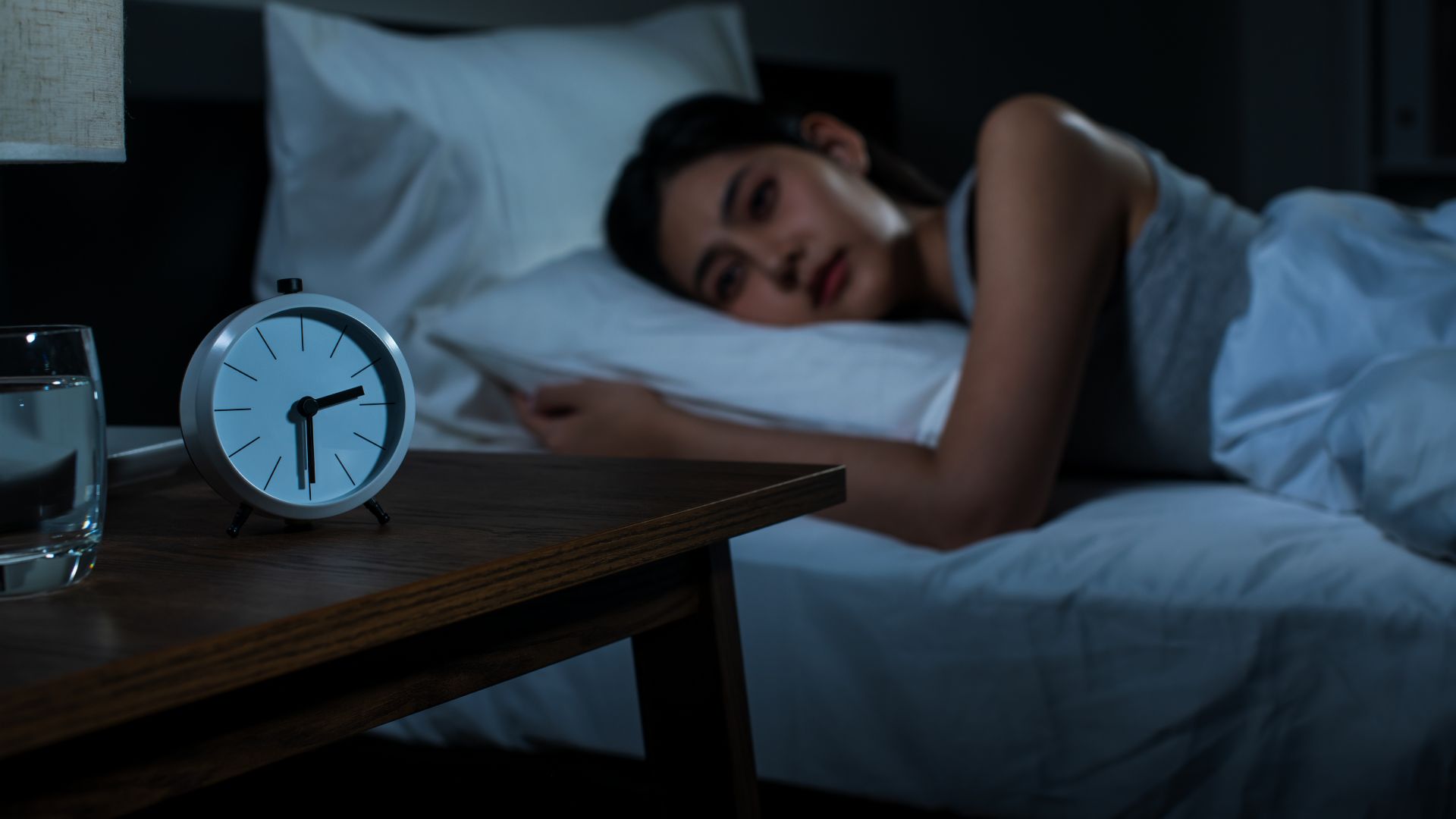
Getting enough sleep is vital for our mental and physical health, and regularly missing out on rest can lead to sleep deprivation, and with it, symptoms like fatigue, irritability, grogginess and headaches.
But what if you have every intention of sleeping for the 7-9 hours recommended for healthy adults each night, but simply can't sleep for more than 6 hours?
Well, for starters, you're not alone. A Gallup poll published in 2024 found that in 2023, 53% of Americans reported getting between 6 and 7 hours sleep a night, while 20% said they got 5 hours or less.
Among those polled, only 36% of women and 48% of men reported that they get the amount of sleep that they need.
So what are the reasons behind falling asleep and waking up just 6 hours later? And is it possible that this is enough sleep to function well the following day? We've spoken to sleep experts below to find out.
3 reasons why you keep waking up after 6 hours of sleep
"Waking up after 6 hours of sleep can be due to several factors and a combination of these factors," says Dr. Leah Kaylor, a licensed clinical psychologist specializing in sleep and trauma. These are the three most common causes.
1. Stress and anxiety
Mental health can have a huge impact on our sleep, and this includes "stress, anxiety, or an overactive mind (your brain may be alert before your body is ready to be,)" says Dr. Kaylor.
Get instant access to breaking news, the hottest reviews, great deals and helpful tips.
"One of the most common [reasons] that I see as a sleep psychologist is untreated mental health conditions such as anxiety, depression, and trauma that are not addressed," Dr. Kaylor explains.
If you think this might be the case, talk to a health professional. They'll be able to help you understand these issues further and offer solutions.
To ease stress and anxiety at night, create a calming nighttime routine. You could even give sleep meditations a go to practice mindfulness.
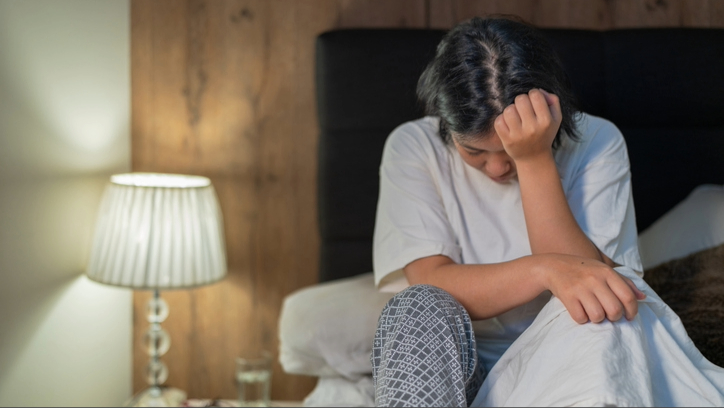
2. Poor sleep hygiene
"Another HUGE problem is poor sleep hygiene, like inconsistent bedtimes and heavy meals before bed," Dr. Kaylor explains.
Sleep hygiene can include "environmental disruptions like light, noise, or temperature, as well as alcohol and caffeine," she adds.
Examine your daily routine and see if you have any habits that might be impacting your sleep, like working in your bedroom or tucking into a sugary snack right before bed.
3. Dysregulated circadian rhythm
Waking up too early could also be a circadian rhythm issue, Dr. Kaylor says, which means that your internal clock is misaligned.
"One of the most common reasons is changes in our internal clock as we get older. We naturally tend to go to bed a bit earlier and wake up earlier with age, and our sleep also becomes lighter," Dr Pamela Walters, an MD and consultant psychiatrist.
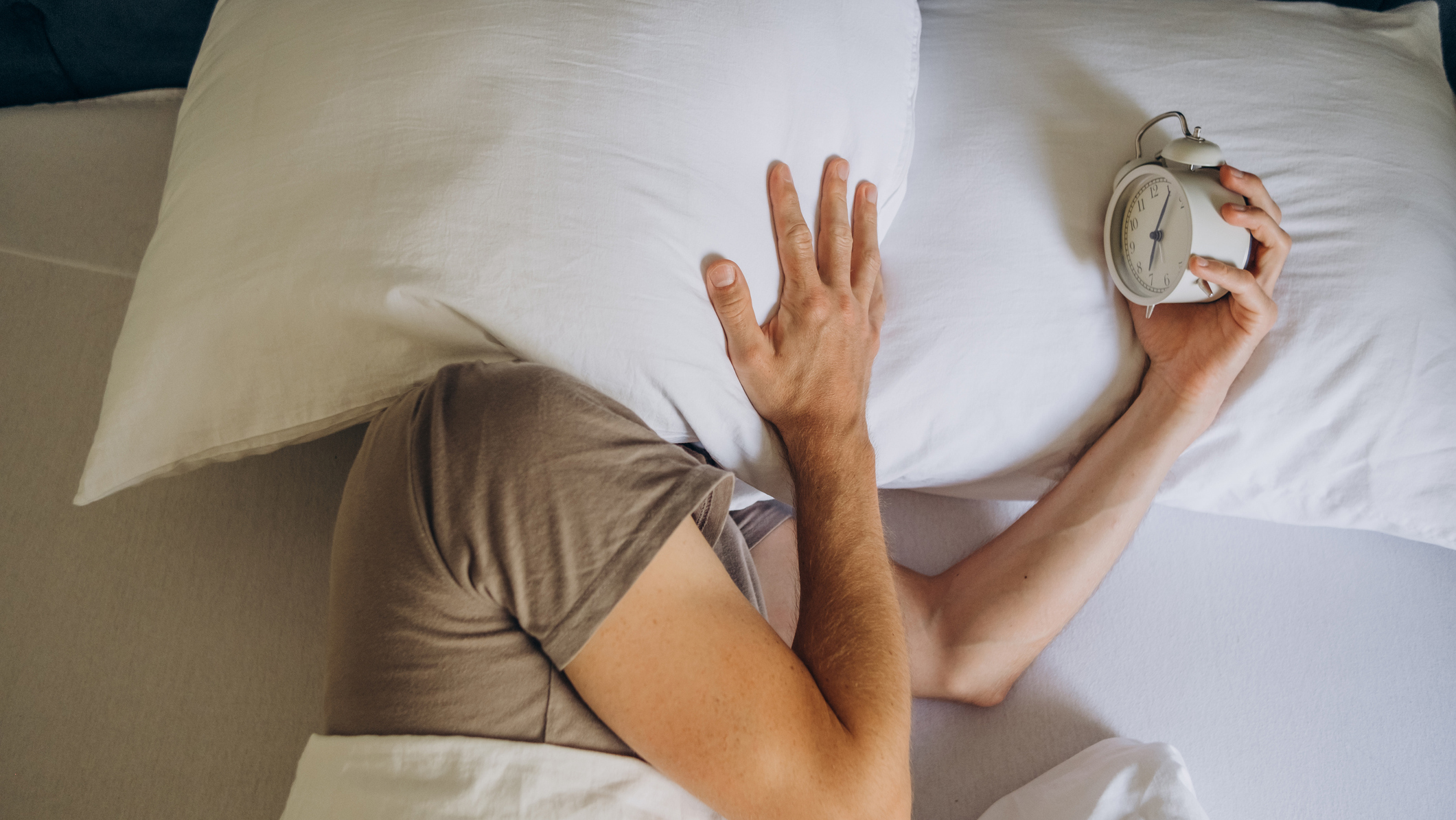
"Another factor is your cortisol rhythm. Cortisol naturally starts to rise in the early hours, and in some people, that rise comes too soon and wakes them," she adds.
Changes to these rhythms can impact your sleep drive, which is what dictates how sleepy we feel in the evenings and how long we can sleep for.
"It could be that your body’s sleep drive isn't strong enough to push you into another full sleep cycle," Dr. Walters explains. This could result in you waking up earlier than usual.
Is 6 hours of sleep enough?
The amount of sleep we need changes as we grow from babies, to children, teenagers, adults and then into older age. However, for the majority of our adult life, there is a recommended number of hours sleep we should aim for.
"Most adults need between 7-9 hours every night," says naturopathic sleep expert and founder of Skilled Sleeper, Dr. Catherine Darley.
"This is a bell curve, with some people being 8.5 hour sleepers, others needing 7.5 hours etc," she explains.
"What’s most important is to know your personal sleep setpoint, or where you fall on that bell curve. The tails of the bell curve are 6 and 10 hours."
Feeling sleepy and unfocused or irritable after six hours is a sign that you’re not getting enough restorative sleep
Since everyone is slightly different, it's important to focus on not just the length of time you spend asleep, but the affects of that sleep on your wellbeing.
"The key is how you feel during the day—if you're alert, focused, and emotionally stable without needing naps or caffeine to function, you’re likely getting enough rest," says Dr. Kaylor.
However, if you find that you're regularly sleeping for only 6 hours and not feeling refreshed the following day, it can be a sign that you need more rest.
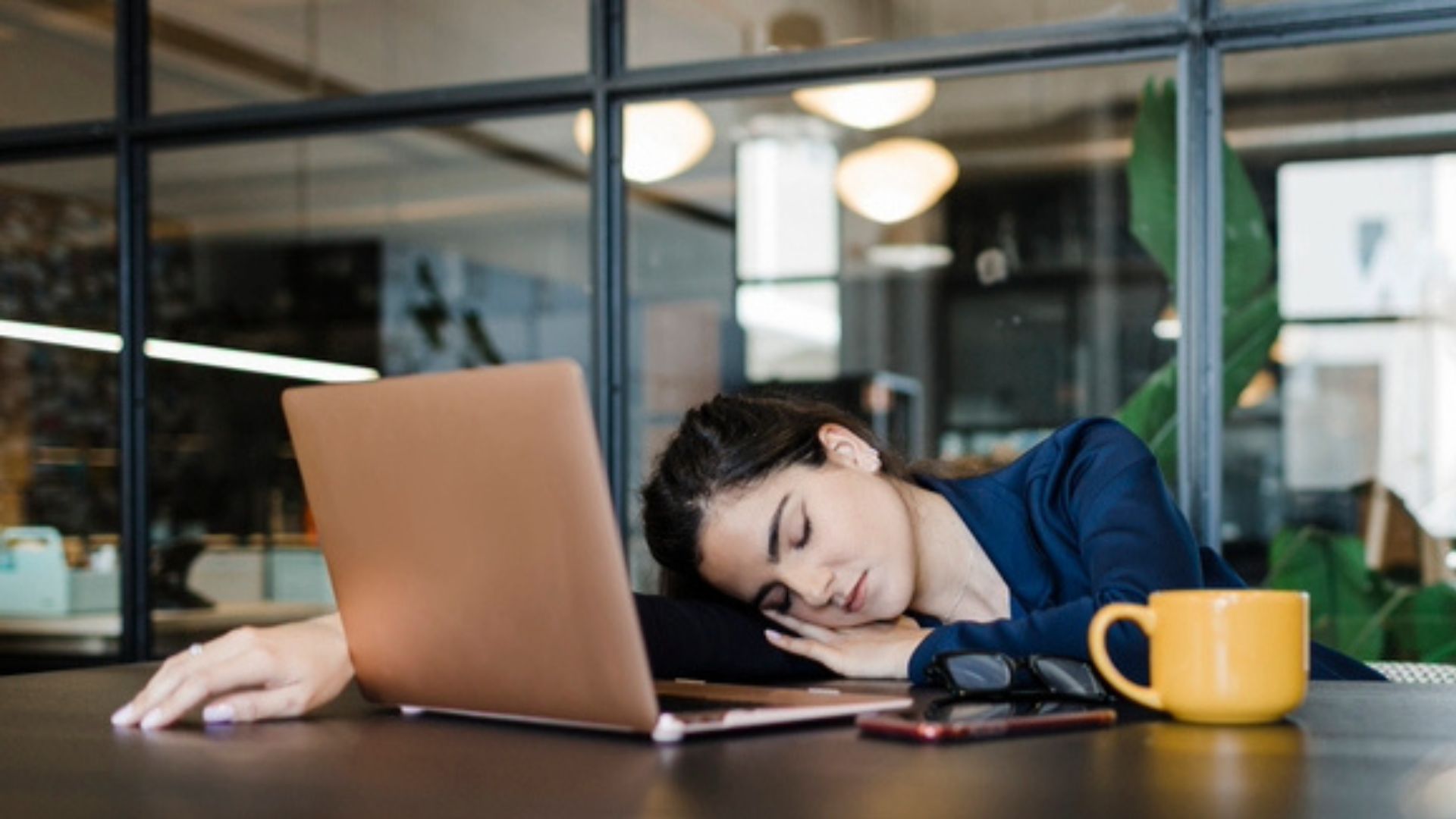
"Feeling sleepy and unfocused or irritable after six hours is a sign that you’re not getting enough restorative sleep," explains Dr. Walters.
"Quality matters just as much quantity when it comes to sleep so even if you’re in bed for six hours, if that sleep is light or interrupted, your brain and body won’t have time to go through all the essential stages of sleep."
"If you’re routinely getting six hours or less and struggling with tiredness, your body is probably telling you it needs more rest," she adds
If you're not sure whether you're getting enough sleep, you could try this simple 15 minute test and take a look at these seven signs you may be sleep deprived.
How to sleep through the night
If you want to increase your chances of an undisrupted sleep, consider these methods for improving your rest.
Keep a consistent sleep schedule
Dr. Walters says that an "inconsistent sleep schedule" is among the lifestyle factors that can "impact your ability to stay asleep through the night."
So, maintaining a regular schedule instead is a great step toward helping to improve the quality of your sleep.
Ensuring that you go to sleep and wake up at the same time each night and morning can help to regulate your circadian rhythm, which means you'll not release melatonin at the right time to help you feel sleepy, but you'll have a better shot at sleeping through the night.
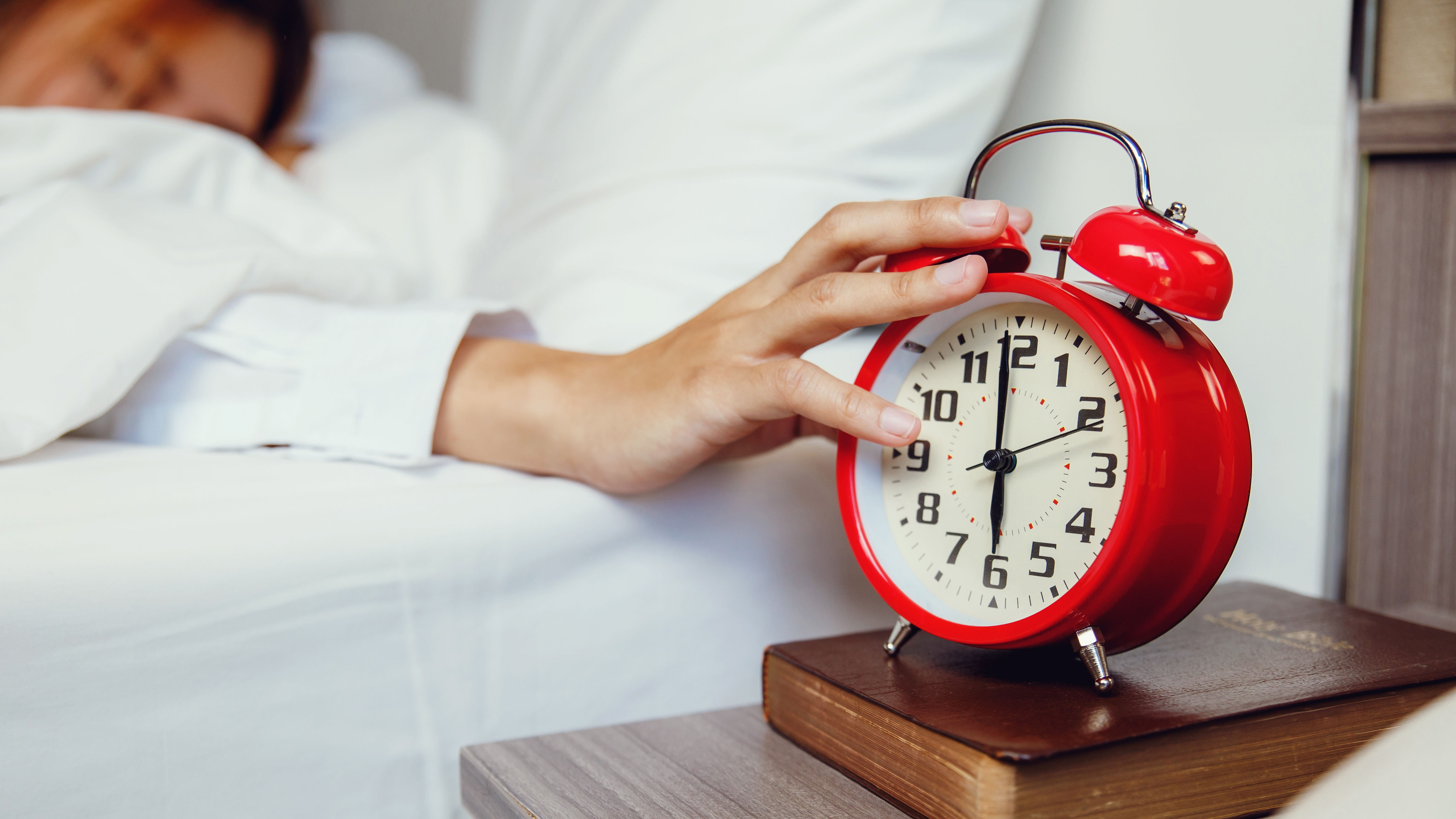
Reduce caffeine and alcohol intake
While there are a few people who may benefit from drinking coffee before bed, it's generally advised to limit your caffeine intake to the mornings, since it can remain in your system for 3-10 hours.
And, while it's tempting to unwind with an alcoholic drink at night, particularly since they often seem to help us fall asleep more quickly, it's important to remember that the sedative effect of alcohol doesn't last.
"Although alcohol can help us fall asleep at night, once it’s metabolized it can cause us to wake later in the night. Stop alcohol three hours before bed," says Dr. Darley.
Perfect your sleep environment
Want to create a haven for good rest? "Make your bedroom an ideal place to sleep," says Dr. Darley.
"Our sleep is very sensitive to light, the sun coming up can wake us. Make your bedroom as dark as a cave for sleep, ideally lighting should be less than 1 lux, and without any blue light," Dr. Darley adds.
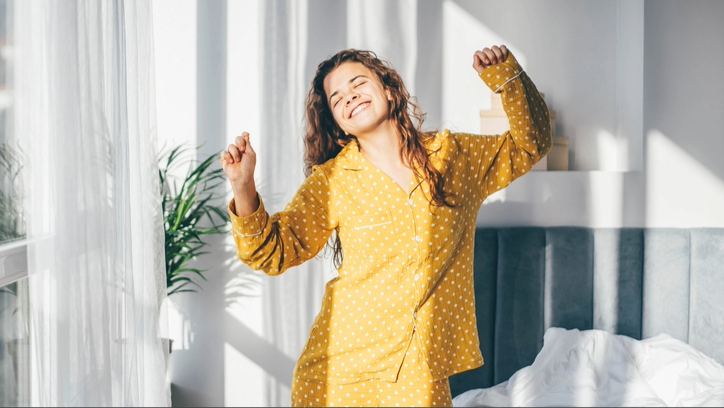
If light pollution is a concern where you live, it's also worth considering blackout curtains or blinds.
It's also important that you have the best mattress for your sleep needs, along with the best pillow, so you can remain comfortable and supported all night long.
Plus, investing in sleep tech, like ear plugs if you live somewhere noisy can help you to make the most of your bed. And don't forget the climate in your bedroom.
"We sleep best when it’s cool, so in the morning the rising temperature can wake us. Best to keep the heat down until you wake," she explains.
Research has shown that the optimal temperature for sleep is 65 to 70 F (18 to 21°C), so check your thermostat before you head to bed, and if you sleep particularly hot, make sure you're sleeping on one of the best cooling mattresses.
Jenny Haward is a U.K. based freelance journalist and editor with more than 15 years of experience in digital and print media. Her work has appeared in PEOPLE, Newsweek, Huffpost, Stylist, ELLE, The Sydney Morning Herald and more. Jenny specializes in health, wellness and lifestyle, taking a particular interest in sleep.
You must confirm your public display name before commenting
Please logout and then login again, you will then be prompted to enter your display name.
